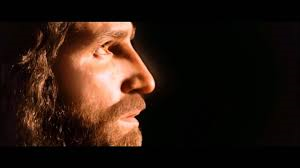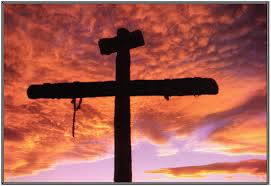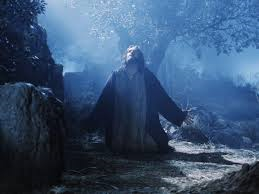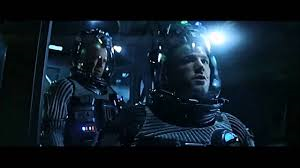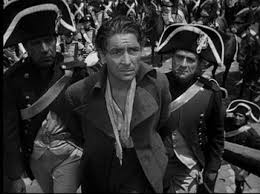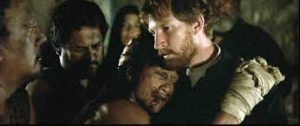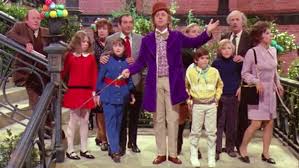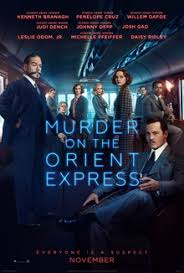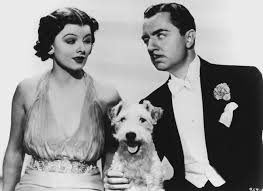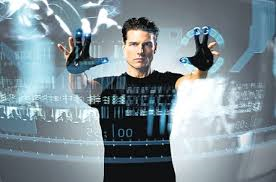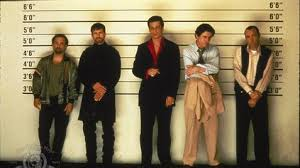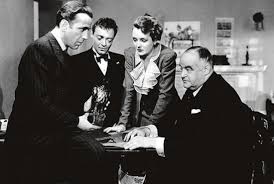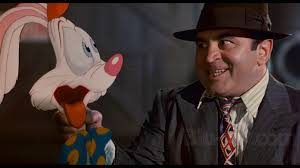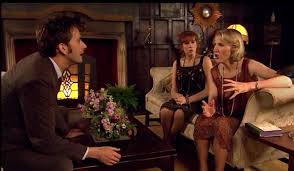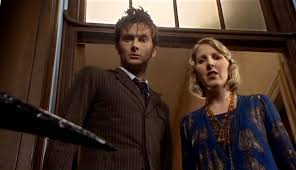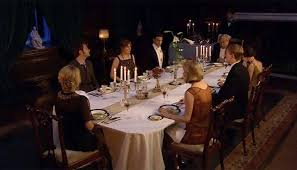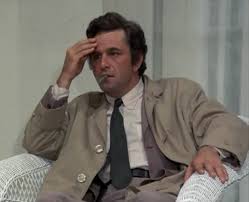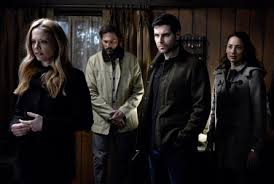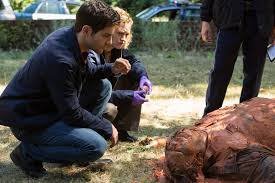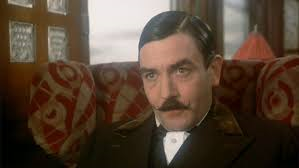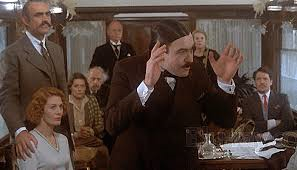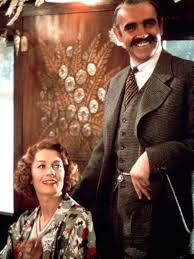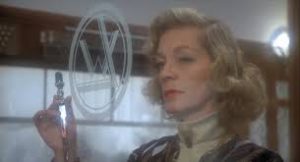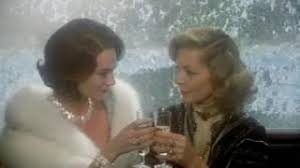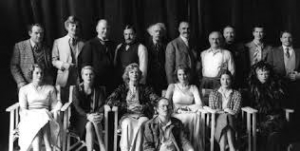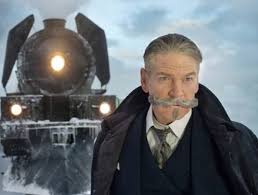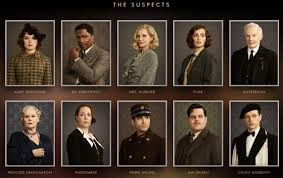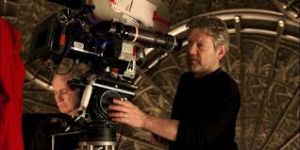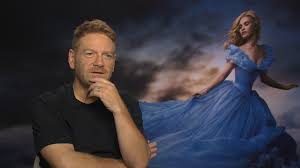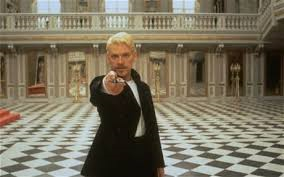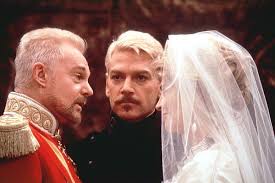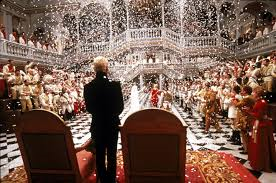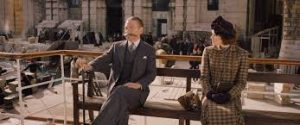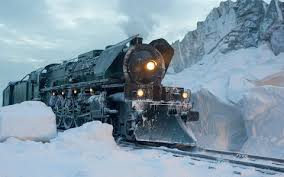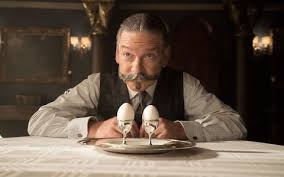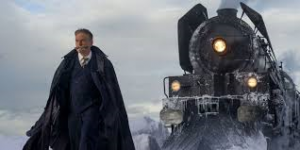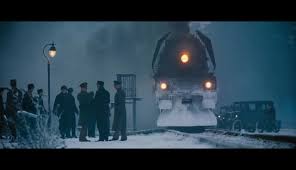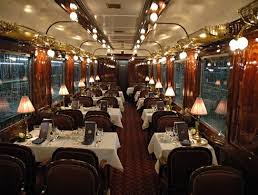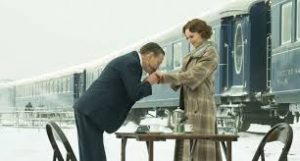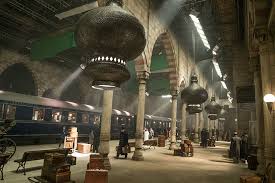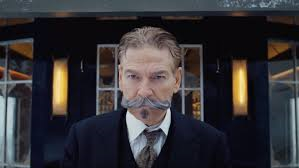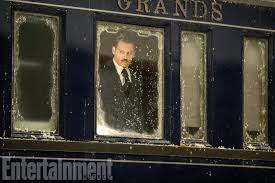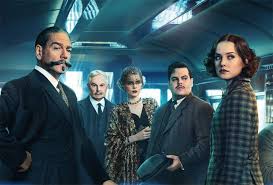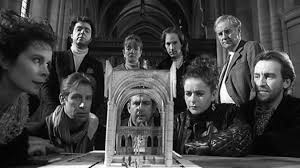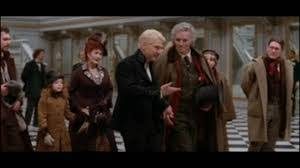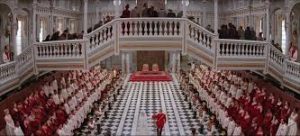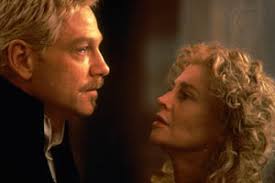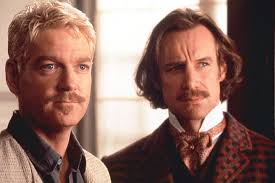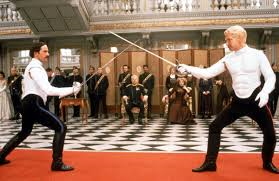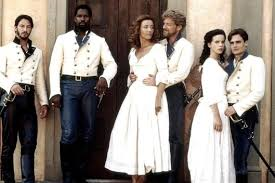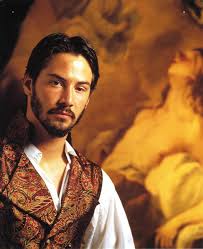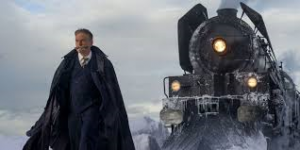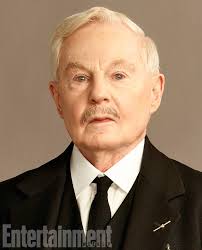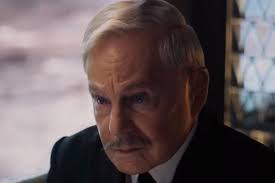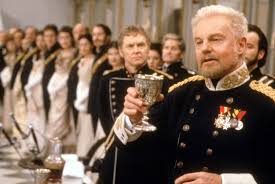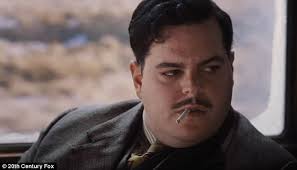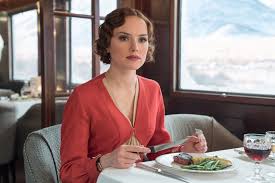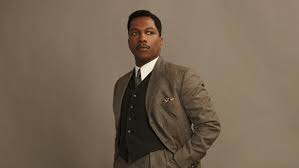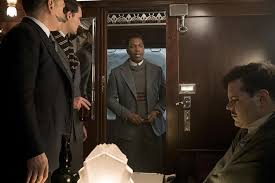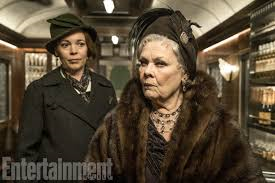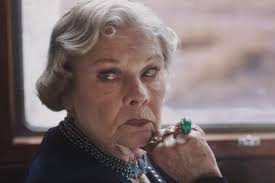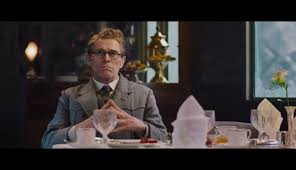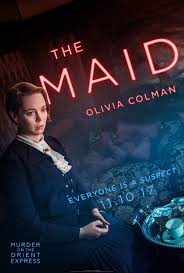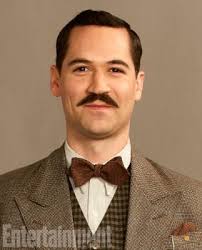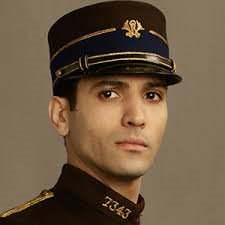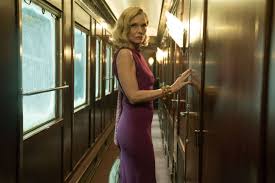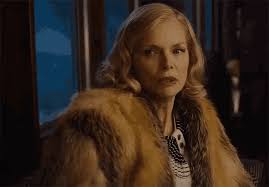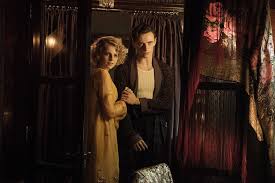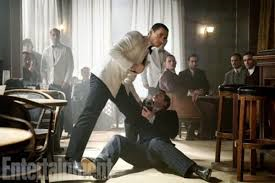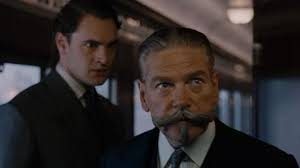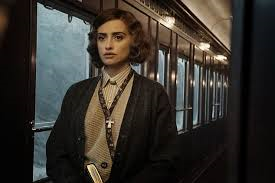AUDIO OPTION OF MY TOP 10 EASTER MOVIES NOT USUALLY ON ANYONE ELSE’S LIST
There are a number of traditional Easter movies we turn to every year – and rightly so.
 The Passion of the Christ is at the top of that list. Directed by Mel Gibson and starring Jim Caviezel, this 2004 movie is based upon the Gospels as well as the writings of Blessed Anne Catherine Emmerich’s visions of Our Savior’s walk to Calvary. The Passion is a difficult watch and not one I would recommend for children or even some adults. Accurate in its intensity, there can be no mistake of the suffering and degradation Our Lord went through as expiation for our sins. And because of that alone it is often difficult for anyone to watch, let alone believers who understand that even now, outside of time, our sins make us complicit in putting Jesus on the Cross.
The Passion of the Christ is at the top of that list. Directed by Mel Gibson and starring Jim Caviezel, this 2004 movie is based upon the Gospels as well as the writings of Blessed Anne Catherine Emmerich’s visions of Our Savior’s walk to Calvary. The Passion is a difficult watch and not one I would recommend for children or even some adults. Accurate in its intensity, there can be no mistake of the suffering and degradation Our Lord went through as expiation for our sins. And because of that alone it is often difficult for anyone to watch, let alone believers who understand that even now, outside of time, our sins make us complicit in putting Jesus on the Cross.
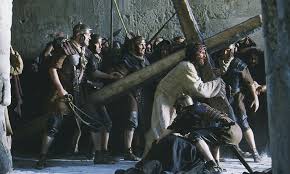 If you CAN watch this remarkable film I strongly encourage you to do so. If not this year, then at some time in your life. It should be on most people’s bucket list.
If you CAN watch this remarkable film I strongly encourage you to do so. If not this year, then at some time in your life. It should be on most people’s bucket list.
There are other films, though, which help convey this message. 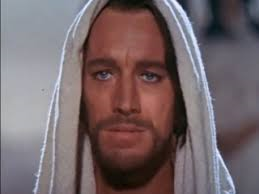 The Greatest Story Ever Told is a beautiful but far more sanitized version of the life of Jesus. Covering His birth to His Resurrection, this old classic stars Max von Sydow and features an array of actors who would be familiar to anyone fond of old World War II or epic costume dramas of the 1950’s and 1960’s: Telly Savalas, David McCallum, Donald Pleasance, Claude Rains, Jose Ferrer, Martin Landau, Charlton Heston, and Roddy MacDowell, among others
The Greatest Story Ever Told is a beautiful but far more sanitized version of the life of Jesus. Covering His birth to His Resurrection, this old classic stars Max von Sydow and features an array of actors who would be familiar to anyone fond of old World War II or epic costume dramas of the 1950’s and 1960’s: Telly Savalas, David McCallum, Donald Pleasance, Claude Rains, Jose Ferrer, Martin Landau, Charlton Heston, and Roddy MacDowell, among others
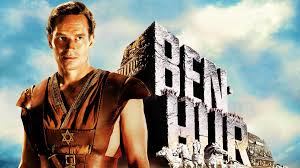 1959’s Ben Hur, starring Charlton Heston, is an inspiring gem of a film, about two life shattering encounter-moments with Christ that re-inform the life of an unjustly punished man.
1959’s Ben Hur, starring Charlton Heston, is an inspiring gem of a film, about two life shattering encounter-moments with Christ that re-inform the life of an unjustly punished man.
These, as well as many other traditional films, are magnificent and should be seen multiple times.
But I wanted to suggest a broader field of vision this year. I thought it might be a worthwhile exercise to consider films which are either lesser known or whose Christ-like self-sacrificing moments are under appreciated.
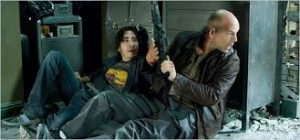 Many movies today lionize the idea of revenge, following the motto of Bruce Willis’ John McClane, from Live Free or Die Hard. When asked what his plan was to save his daughter, McClane quips: “Find Lucy. Kill everybody else.” The cinemas are rife with vengeance porn bloodbaths: The John Wick franchise, the Taken series, the Kill Bills, Peppermint, Death Wish, True Grit…
Many movies today lionize the idea of revenge, following the motto of Bruce Willis’ John McClane, from Live Free or Die Hard. When asked what his plan was to save his daughter, McClane quips: “Find Lucy. Kill everybody else.” The cinemas are rife with vengeance porn bloodbaths: The John Wick franchise, the Taken series, the Kill Bills, Peppermint, Death Wish, True Grit…
And I’m not saying all these movies are bad. Some are classics. 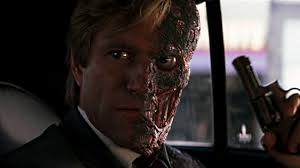 And some, like Dark Knight, make it clear that the desire for revenge can corrupt and destroy you. Nor am I absolving myself from admitting to be a fan of these often cathartic films.
And some, like Dark Knight, make it clear that the desire for revenge can corrupt and destroy you. Nor am I absolving myself from admitting to be a fan of these often cathartic films.
But – there is something inherently and far more satisfying, not to mention noble and Christ-like, in stories wherein one character sacrifices himself to save a stranger or even an enemy. So here is my list of 10 movies – some of which may surprise you – which include self-sacrifice on behalf of a stranger or enemy.
BEYOND HERE BE SPOILERS
While there are dozens of others I could have included on the following list, here is my top 10 (plus) from least to most notable of my personal favorite:
MOVIES DEMONSTRATING UNEXPECTED EXAMPLES OF CHRIST-LIKE SACRIFICE
SERIOUSLY – SPOILERS BELOW – AS IN – I GIVE AWAY ENDINGS AND/OR KEY PLOT POINTS TO A BUNCH OF MOVIES. YOU HAVE BEEN WARNED!!
10. Starting with an example for my fellow nerds – Avengers: Age of Ultron is about super heroes combating an evil super A.I. During the course of the movie, two characters who had been antagonists to our good guys, Scarlett Witch (Elizabeth Olsen) and Quicksilver (Aaron Taylor-Johnson) switch sides. During the course of one of the battles against Ultron’s AI bots, Quicksilver throws himself, as a shield, in front of Hawkeye, one of his former opponents, who is, in turn, shielding a child with his body. Quicksilver takes the brunt of the bullets and dies. Greater love hath no man…
9. In Armageddon, Bruce Willis, instead of killing everybody else, chooses to die in the place of his daughter’s fiancé, a man with whom he has had a love-hate relationship throughout the movie, in order to save the world.
8. X-Men: Days of Future Past, casts Magneto (Ian McKellen) as our unexpected hero. Magneto, who has been at lethal odds with Patrick Stewart’s Professor X and company throughout the course of three previous movies (four if you count The Wolverine) places himself between an overwhelming force of deadly mutant-hunting robots and his life long friend/nemesis Charles Xavier.
7. Dramatically moving is the moment in 1982’s Blade Runner wherein Harrison Ford’s Deckard has a final confrontation with Rutger Hauer’s Roy Batty. Batty is an android who Deckard has been chasing throughout most of the movie. By showdown time Deckard has killed most of Batty’s friends and pursued the android to a rooftop where Batty gets the literal upper hand over the bounty hunter. Batty grabs Deckard just as Deckard loses his grip on a slick rain soaked pipe from which he would have plummeted to his death. But instead of gloating over his pursuer’s brutal demise, Batty lifts Deckard, his tormentor and would be executioner, in an act of mercy, to safety minutes before his own time is up and his predetermined android life span ends.
6. A little known movie worth the watch in this theme is Baby Boom. Baby Boom stars Diane Keaton, a darling of the late 1970’s through early 1990’s cinema, (most particularly from Annie Hall, the Godfather saga and the Father of the Bride movies). Keaton plays JP Wiatt, a wealthy and successful advertising executive who inherits a young toddler from a deceased cousin. The key turning point in the movie comes early when JP has the opportunity to “dump” this child on a willing foster family. But, knowing in her heart of hearts what she will ultimately have to give up, she just can’t bring herself to do it and turns her life upside down, inside out and leaves everything she values behind, in order to start over as a mother. With a supporting cast of Harold Ramis (actor in Ghostbusters, director/writer of Groundhog Day), James Spader (Ultron as well as “Red” Reddington from Blacklist), Sam Shepard (actor in The Right Stuff and prolific stage and screenplay writer), it is a shame this charming and warm hearted movie did not get more positive attention.
5. The end of the 1935 version of Dicken’s Tale of Two Cities sees Ronald Coleman’s dissipate Sydney Carlton dying on the guillotine for another man’s happy ending: “Tis a far far better thing that I do than I have ever done …” He takes the place of the noble Darnay, the husband of the woman, Lucie, he loves but who Carlton knows does not love him. Carlton subjects himself to a shameful and terrifying death for the love of someone he could have claimed but was not truly his.
4. Rain Man a brilliantly acted and beautifully quiet film, stars American cinematic icon and chameleon Dustin Hoffman and the ever ebullient and watchable Tom Cruise. Cruise plays Charlie, a selfish and cynically manipulative man. When Charlie’s father dies, Charlie takes custody of his autistic brother, Raymond, solely to get access to the three million dollars left to Raymond’s trust fund. But during the course of a cross country trek Charlie develops a genuine and completely altruistic love for this man, even knowing Raymond will never be capable of returning or even acknowledging the bond.
3. Molokai: The Story of Father Damien stars David Wenham (Lord of the Rings). The movie is based on the true story of 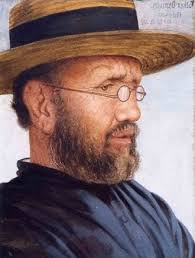 Father Damien who feels inexorably pulled to offer up the prime of his life to a leper colony, knowing he will eventually catch and succumb to the disease that ravages the inhabitants.
Father Damien who feels inexorably pulled to offer up the prime of his life to a leper colony, knowing he will eventually catch and succumb to the disease that ravages the inhabitants. 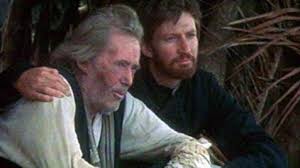 Also starring Peter O’Toole (Lord Jim, Lion in Winter among a plethora of famous performances),
Also starring Peter O’Toole (Lord Jim, Lion in Winter among a plethora of famous performances), 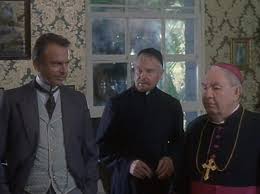 Derek Jacobi (the great Shakespearean actor who has worked with Kenneth Branagh on many films from Hamlet to Murder on the Orient Express),
Derek Jacobi (the great Shakespearean actor who has worked with Kenneth Branagh on many films from Hamlet to Murder on the Orient Express), 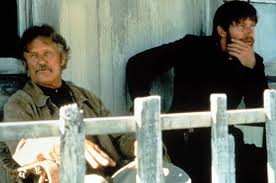 Kris Kristofferson (country singer turned actor), Alice Krige (Star Trek: First Contact), and
Kris Kristofferson (country singer turned actor), Alice Krige (Star Trek: First Contact), and 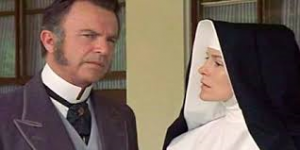 Sam Neill (Jurassic Park) this film is a moving portrait of a truly Christ-like example of loving another as oneself. This one could be watched by mid-teens and up with parental supervision.
Sam Neill (Jurassic Park) this film is a moving portrait of a truly Christ-like example of loving another as oneself. This one could be watched by mid-teens and up with parental supervision.
2. After The Passion, the most difficult to watch is Calvary, a story about Father James, portrayed by Brendan Gleeson, 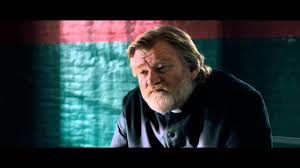 a flawed man but good priest, who spends his life in caring for a difficult flock, and takes upon himself the punishment for another man’s sins. With a supporting cast which includes
a flawed man but good priest, who spends his life in caring for a difficult flock, and takes upon himself the punishment for another man’s sins. With a supporting cast which includes 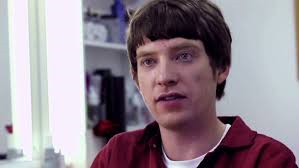 Gleeson’s son Domhnall, the usually jaunty
Gleeson’s son Domhnall, the usually jaunty 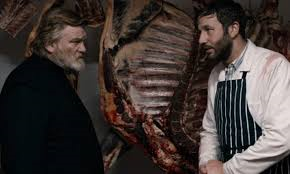 Chris O’Dowd who takes on a very different role this time, and the familiar face of M. Emmett Walsh, this is a movie that you will not easily forget.
Chris O’Dowd who takes on a very different role this time, and the familiar face of M. Emmett Walsh, this is a movie that you will not easily forget. 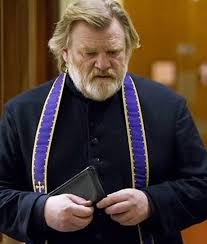 Language, violence, and extreme topics of serial killers, arson, murder and child sex abuse make this one movie STRICTLY for adults, and only those who are well formed in their faith, as well as with a sturdy emotional constitution.
Language, violence, and extreme topics of serial killers, arson, murder and child sex abuse make this one movie STRICTLY for adults, and only those who are well formed in their faith, as well as with a sturdy emotional constitution.
RUNNER UP
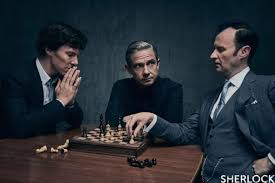 Before revealing my number one pic, I can not neglect a favorite moment from the Cumberbatch/Freeman Sherlock films. (Yes, I know they are technically TV shows, but at 90 minutes each and with a quality of acting and writing that outshines the vast majority of what hits the big screen, these qualify as movies.) In The Final Problem Holmes (Benedict Cumberbatch), Watson (Martin Freeman) and Mycroft (Sherlock’s estranged brother, played by Mark Gatiss) are trapped by a psychopath into a sadistic game where Holmes must choose to kill either his best and arguably only friend, Watson, or his brother.
Before revealing my number one pic, I can not neglect a favorite moment from the Cumberbatch/Freeman Sherlock films. (Yes, I know they are technically TV shows, but at 90 minutes each and with a quality of acting and writing that outshines the vast majority of what hits the big screen, these qualify as movies.) In The Final Problem Holmes (Benedict Cumberbatch), Watson (Martin Freeman) and Mycroft (Sherlock’s estranged brother, played by Mark Gatiss) are trapped by a psychopath into a sadistic game where Holmes must choose to kill either his best and arguably only friend, Watson, or his brother. 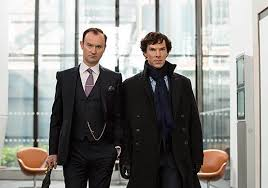 Mycroft then proceeds to explain very coldly and succinctly why Sherlock should kill Watson, putting forth a rather compelling argument why Watson is the weak link in their predicament.
Mycroft then proceeds to explain very coldly and succinctly why Sherlock should kill Watson, putting forth a rather compelling argument why Watson is the weak link in their predicament.  But it is a ruse. Mycroft knows that Sherlock would eventually be able to forgive himself for killing his own brother but it would destroy him to kill Watson. So Mycroft attempts reverse psychology to goad Sherlock into sparing Watson, effectively offering himself up in Watson’s place.
But it is a ruse. Mycroft knows that Sherlock would eventually be able to forgive himself for killing his own brother but it would destroy him to kill Watson. So Mycroft attempts reverse psychology to goad Sherlock into sparing Watson, effectively offering himself up in Watson’s place. 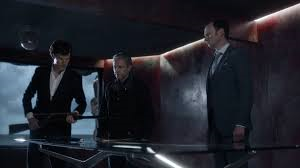 Sherlock understands Mycroft is trying to make this sacrifice so INSTEAD Sherlock, in an act to save BOTH Watson and Mycroft chooses…to shoot himself. (What happens next I’ll leave to you to watch and find out. But you MUST see this stunningly creative, intelligent, witty and masterfully acted show in order of production.)
Sherlock understands Mycroft is trying to make this sacrifice so INSTEAD Sherlock, in an act to save BOTH Watson and Mycroft chooses…to shoot himself. (What happens next I’ll leave to you to watch and find out. But you MUST see this stunningly creative, intelligent, witty and masterfully acted show in order of production.)
1. Saving the best for last is the original Gene Wilder led 1971 Willie Wonka and the Chocolate Factory. This quirky and whimsical musical features Wilder as the eponymous and very eccentric sweets inventor Wonka, who leads a group of ticket-winning children through his mysterious Oompa Loompa-run candy factory.
At the start of the tour all are given an “Everlasting Gobstopper” and cautioned to give it to no one else as the recipe is coveted. All but one have been co-opted into stealing secrets from Wonka by a competitor.
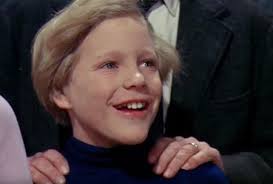 Charlie (Jack Ostrum) is a gentle and honorable child who only wishes to obtain the life time chocolate supply, promised as part of the prize, for his desperately poor family. The rest of the group are indulged, selfish, and one by one fall away from the group as they succumb to their particular vices – gluttony, pride, avarice, and obsession with TV.
Charlie (Jack Ostrum) is a gentle and honorable child who only wishes to obtain the life time chocolate supply, promised as part of the prize, for his desperately poor family. The rest of the group are indulged, selfish, and one by one fall away from the group as they succumb to their particular vices – gluttony, pride, avarice, and obsession with TV. 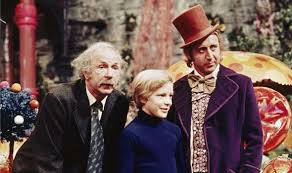 Charlie and his Grandpa Joe (Jack Albertson), are guilty of having snuck a sip of Fizzy Lifting Drink, an infraction for which they are almost immediately repentant and, as they are allowed to continue with the tour, we assume is a minor piccadillo.
Charlie and his Grandpa Joe (Jack Albertson), are guilty of having snuck a sip of Fizzy Lifting Drink, an infraction for which they are almost immediately repentant and, as they are allowed to continue with the tour, we assume is a minor piccadillo.
However, at the end of the day, 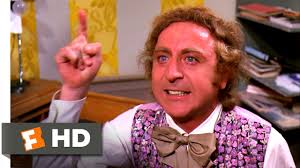 Wonka, who up to now had been especially kind to Charlie, turns nasty and informs them that they, too, have forfeited the prize chocolate, then abruptly and rudely dismissed them. A livid Grandpa Joe tells Wonka off then pulls Charlie aside and advises him to sell the souvenir Gobstopper to Slugworth, the corporate spy.
Wonka, who up to now had been especially kind to Charlie, turns nasty and informs them that they, too, have forfeited the prize chocolate, then abruptly and rudely dismissed them. A livid Grandpa Joe tells Wonka off then pulls Charlie aside and advises him to sell the souvenir Gobstopper to Slugworth, the corporate spy.
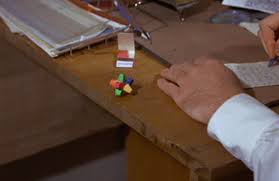 Instead, believing Wonka unaware of the competition’s espionage attempts, Charlie meekly places the candy on Wonka’s desk, thereby protecting Wonka’s secret but foregoing the promised fortune he could have obtained from Slugworth. Charlie sacrifices his future to save someone who has betrayed and deeply hurt him.
Instead, believing Wonka unaware of the competition’s espionage attempts, Charlie meekly places the candy on Wonka’s desk, thereby protecting Wonka’s secret but foregoing the promised fortune he could have obtained from Slugworth. Charlie sacrifices his future to save someone who has betrayed and deeply hurt him.
Wonka then quietly says one of the most touching lines in cinematic history: “So shines a good deed in a weary world.” 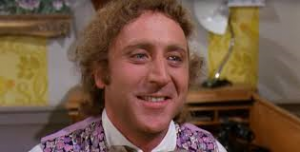 It had all been a test to judge Charlie’s mettle as, and after apologizing to Charlie and Grandpa Joe, a positively effervescent Wonka reveals to Charlie the real prize was the entire factory. Charlie is to be Wonka’s heir.
It had all been a test to judge Charlie’s mettle as, and after apologizing to Charlie and Grandpa Joe, a positively effervescent Wonka reveals to Charlie the real prize was the entire factory. Charlie is to be Wonka’s heir.
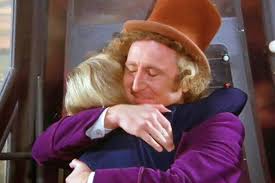 The Christian imagery is unmistakable and no doubt the reason for this telling’s decades old endurance as a family favorite: Wonka allows all the children to be tempted. In a perspicuous, albeit child-like and abbreviated tracking of Pilgrim’s Progress, most fall away, but not Charlie. Charlie turns down a lifetime of worldly goods to save his betrayer, an offering which results in Charlie being taken up as an heir to the confectionary paradise and ends with a literal rise to the Heavens in a floating elevator.
The Christian imagery is unmistakable and no doubt the reason for this telling’s decades old endurance as a family favorite: Wonka allows all the children to be tempted. In a perspicuous, albeit child-like and abbreviated tracking of Pilgrim’s Progress, most fall away, but not Charlie. Charlie turns down a lifetime of worldly goods to save his betrayer, an offering which results in Charlie being taken up as an heir to the confectionary paradise and ends with a literal rise to the Heavens in a floating elevator. 
Unlike the other films mentioned here, this one is accessible to children as well as entertaining for adults.
So there you have my Easter gift of what I hope is a new perspective on films which offer unusual gateways into the examples offered by Jesus of forgiveness, mercy, and love.
By acceptance of His own horrific death for the expiation of our sins, Jesus gave us the template to follow in our own infinitely smaller ways. These movies, famous and obscure, old and recent, from a variety of genres, I think, demonstrate some of the many many movies which bear witness to the many many ways we can find opportunity to die to ourselves for the sake of another. And I hope you find LOTS more.
Love charitably those around you and have a Blessed, Christ-like, Happy … and self-giving … Easter.